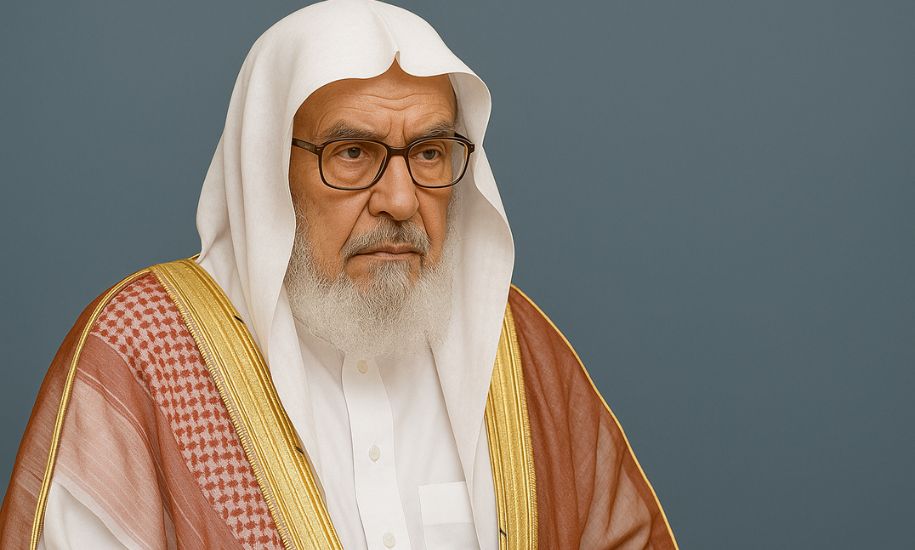Sheikh Saleh Al-Fawzan: The Life, Legacy, and Impact of a Saudi Islamic Scholar

The name “Fawzan” resonates deeply within Islamic scholarly circles, especially in Saudi Arabia and the broader Muslim world. Most notably, it refers to Sheikh Saleh ibn Fawzan Al-Fawzan, a highly respected Islamic jurist, professor, author, and member of key Saudi religious institutions. Known for his adherence to traditional Salafi teachings, Sheikh Al-Fawzan has played a central role in shaping modern Islamic jurisprudence and the direction of religious discourse in the Kingdom.
Early Life and Background
Saleh Al-Fawzan was born on 1 Rajab 1354 AH, corresponding to September 28, 1935 CE, in the town of Ash-Shamāsiyyah in the Al-Qassim Province of Saudi Arabia. He comes from the Al-Dawasir tribe, known for its rich history and cultural heritage.
Fawzan lost his father at an early age and was raised by his family in a traditional Islamic environment. His early years were steeped in religious learning, and he began his education by memorizing the Qur’an and learning foundational Islamic principles under the guidance of local scholars.
Educational Journey
Sheikh Fawzan’s academic journey began in local schools and culminated in some of the highest educational institutions in Saudi Arabia. After completing his primary education in Ash-Shamāsiyyah and later in Buraydah, he enrolled in the Educational Institute in Buraydah, where he graduated in 1377 AH (1958 CE).
He then joined the College of Shari’ah in Riyadh, where he obtained a bachelor’s degree in Islamic jurisprudence. His thirst for knowledge didn’t end there. He went on to complete a Master’s degree, followed by a Doctorate in Islamic jurisprudence, specializing in complex areas such as inheritance law and rulings related to food and consumption. These advanced degrees laid the foundation for his long and influential scholarly career.

Career and Key Positions Held
After completing his formal education, Sheikh Fawzan began teaching at various academic institutions. His career trajectory saw him rise from a local teacher to a highly influential Islamic authority.
He taught at:
-
The Educational Institute in Riyadh
-
The College of Shari’ah
-
The Department of Usul ad-Din (Principles of Religion)
-
The Higher Institute of Judiciary, where he also served as its director
Fawzan’s deep understanding of Islamic law earned him a position as a member of the Permanent Committee for Scholarly Research and Issuing Fatwas, a crucial body in Saudi Arabia responsible for religious rulings. He is also a member of the Council of Senior Scholars, the Kingdom’s highest religious authority.
Additionally, he contributes to the Islamic Fiqh Council affiliated with the Muslim World League, and serves on the Supervisory Committee for Preachers during Hajj, ensuring proper religious guidance is delivered to pilgrims.
Influence and Role in Saudi Islamic Affairs
Sheikh Fawzan’s influence extends far beyond academic settings. As a member of top Saudi religious bodies, he plays a key role in issuing fatwas (Islamic legal rulings) on a wide range of topics.
He is a regular voice on the radio program Nūr ʿAlā ad-Darb, where he answers questions from listeners across the globe. His rulings, often grounded in the Hanbali school of thought and Salafi doctrine, have shaped legislation and social policy in Saudi Arabia.
Whether it’s a question about modern finance, family law, or religious practice, Sheikh Fawzan’s fatwas are widely referenced and respected across the Arab and Islamic world.
Key Students and Mentors
Throughout his scholarly journey, Sheikh Fawzan studied under some of the most prominent Islamic scholars of the 20th century. His mentors included:
-
Sheikh Abdulaziz ibn Baz, the former Grand Mufti of Saudi Arabia
-
Sheikh Abdurrahman Al-Sa’di, a leading Salafi theologian
-
Sheikh Muhammad Al-Ameen Al-Shanqiti
-
Sheikh Abdulrazzak Al-Afifi
These scholars influenced his understanding of aqidah (Islamic creed), fiqh, and tafsir (Qur’anic exegesis).
In turn, Sheikh Fawzan has mentored and taught hundreds of students, many of whom have become scholars, judges, and imams across the Islamic world.
Books and Publications
Sheikh Fawzan is a prolific author, with more than 35 books and collections of fatwas published to date. His works span a wide range of Islamic sciences including:
-
Aqidah (Creed)
-
Fiqh (Jurisprudence)
-
Hadith (Prophetic traditions)
-
Refutations of bid’ah (religious innovations)
Some of his most notable publications include:
-
“Al-Irshād ilā Ṣaḥīḥ al-ʿAqīdah” (Guidance to the Correct Belief)
-
“Sharḥ al-ʿAqīdah al-Wāsitiyyah” (Explanation of Ibn Taymiyyah’s Wasitiyyah Creed)
-
“Minhāj al-Salikin” (Path of the Seekers)
-
Collections of Fatawa from his radio program and lectures
These books are studied in Islamic universities, mosques, and circles around the world, especially in the Gulf countries.
Beliefs, Fatwas, and Public Stances
Sheikh Fawzan is firmly rooted in Salafi theology, which emphasizes returning to the practices of the earliest generations of Muslims (Salaf).
His fatwas have covered a wide array of issues including:
-
The prohibition of innovation (Bid’ah) in religious matters
-
Strict interpretations of gender interaction
-
Clear rejection of extremist ideologies while also opposing liberalism
-
Emphasis on obedience to Muslim rulers unless they promote clear disbelief
-
Opposition to Sufism, Shia practices, and modern political Islam movements
While some view his opinions as strict or conservative, his supporters see him as a defender of traditional Sunni orthodoxy.
Public Engagements and Global Recognition
In addition to his scholarly contributions in Saudi Arabia, Sheikh Fawzan is a prominent figure in international Islamic conferences, scholarly councils, and da’wah efforts.
He is regularly featured in Islamic publications, and his books have been translated into multiple languages including English, Urdu, and Indonesian. His inclusion in “The Muslim 500”, a list of the world’s most influential Muslims, underscores his global impact.
Legacy and Modern Relevance
Even in his 90s, Sheikh Saleh Al-Fawzan continues to be an active voice in Saudi religious discourse. His guidance shapes curricula in religious institutions, and his fatwas are widely circulated across Arab TV, radio, and social media.
His enduring legacy is evident in:
-
Thousands of students educated under his guidance
-
A massive library of books and audio lectures
-
His consistent presence in official Saudi fatwa bodies
For many, he is a beacon of continuity in Islamic tradition amidst modern change.
Criticisms and Controversies
As with any prominent scholar, Sheikh Fawzan has faced criticisms:
-
Some accuse him of aligning too closely with the Saudi government.
-
His rulings are considered overly strict by liberal reformists.
-
He has been criticized for not supporting progressive movements or reinterpretations of Islamic law.
Despite this, his authority within conservative and traditionalist circles remains uncontested.
Conclusion
The life and work of Sheikh Saleh Al-Fawzan serve as a testament to deep-rooted Islamic scholarship in the modern era. His legacy continues through his writings, students, and the fatwas that guide millions. As one of the senior-most voices in contemporary Islam, Sheikh Fawzan has ensured that the tradition of scholarly rigor and devotion to faith remains alive and influential.
For more informative articles visit Trend Loop 360 .